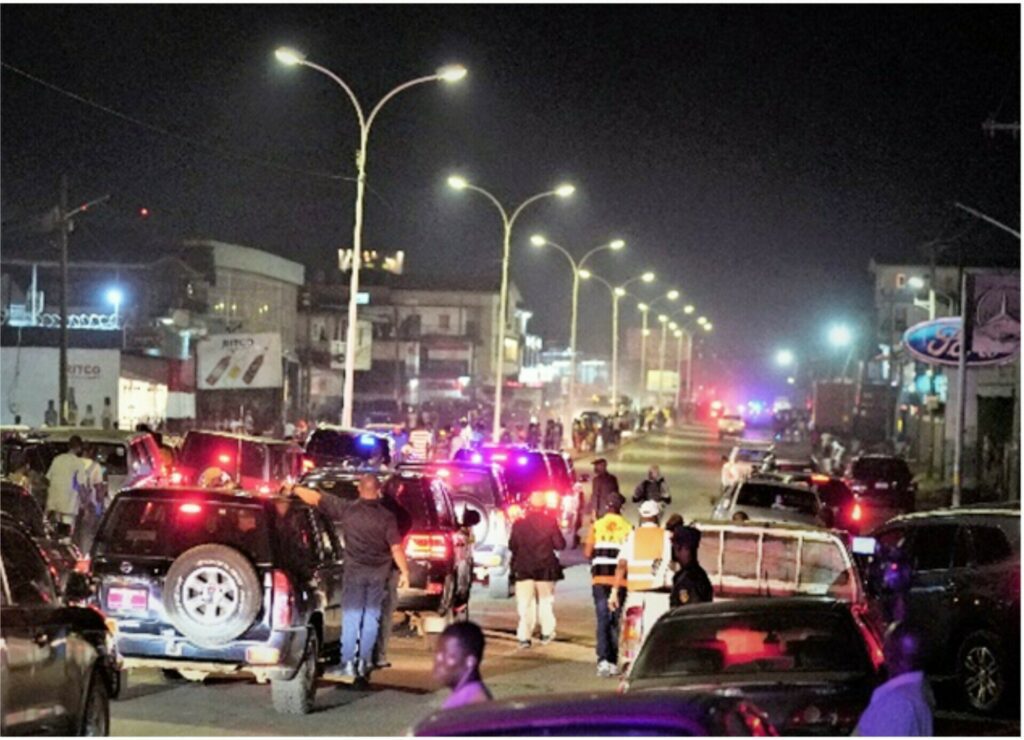By Seltue Karweaye
Liberia has an estimated population of over 5 million, which provides a rich source of skilled and unskilled labor, making it an attractive prospect for global trade. Furthermore, the country is abundant in mineral resources and possesses some of the largest mineral reserves in sub-Saharan Africa.
Despite its abundant resources, such as itabirite-type iron ores, gold diamonds, timber, rubber, and vast agricultural potential, Liberia has yet to realize its full economic potential 177th years after independence. The growing population has become a source of weakness not strength, leading to mass unemployment and overstretching of inadequate and poorly maintained infrastructure, Many Liberians have been forced to seek opportunities abroad.
In contrast, newly independent nations like Ghana, Nigeria, Rwanda, Ivory Coast, Qatar, and the United Arab Emirates etc have surged ahead of Liberia. Major corporations from developed countries find the business climate in Liberia unfavorable due to decaying infrastructure and corruption. The aftermath of coups and civil wars has also deterred corporations from returning, citing insecurity, unstable electricity supply, and endemic corruption as major hindrances to their operations. Regrettably, the environment is increasingly being exploited for dubious business activities under the guise of foreign direct investment.
There was a giant
At independence, all eyes were on Liberia, the first independent country in Africa. Liberians excelled in intellectual and educational endeavors, business, international diplomacy, and in military and political leadership. The country was a founding member of the League of Nations as well as a founding member of the United Nations (UN) in 1945, along with Egypt, Ethiopia, etc., and provided leadership and support to United Nations peacekeeping missions in Congo and other countries and played a key role in the movement to end apartheid in Southern African countries, including South Africa, Northern Rhodesia (Zambia), and Southern Rhodesia (Zimbabwe).
Liberia was instrumental in the formation of the Organization of African Unity (OAU), now the African Union (AU). A preparatory meeting held in Sanniquellie, Nimba County, in 1959 between then Presidents William V. S. Tubman of Liberia, Ahmed Sekou Toure of Guinea, and Kwame Nkrumah of Ghana was significant to the formation of the OAU (AU). Liberia’s economic strength in the 1950s and 1960s made it politically relevant in Africa. Liberia’s economy grew faster than Japan’s in the decade before 1961, and its GDP per capita was higher than Japan’s after World War II. Liberia also played a crucial role in the formation of the African Union and the Economic Community of West African States (ECOWAS)
The fall
Liberia’s downfall can be attributed to a myriad of issues, including a succession of failed administrations, the 1980 military coup, two civil wars, pervasive corruption in the public bureaucracy, the enticing nature of public office, which attracts unscrupulous individuals to politics, continuous plundering of the national treasury, lack of public accountability, and religious and ethnic bigotry, among other challenges.
The absence of dedication from both leaders and citizens towards building a united, stable, developed, and prosperous Liberia, coupled with the prevalence of hard-line ethnic or regional politics in a country comprised of over 16 ethnic groups, is a recipe for the country’s unavoidable demise.
Furthermore, the persistent public corruption that has plagued Liberia since its formation emanates from a weakened and weakened governance structure, hindering Liberia from realizing its development potential.
Put differently, while various factors have hindered Liberia’s progress over the years, the devastating 17-year civil wars that concluded in 2003 significantly weakened the state. The frequent insurgent attacks during that period inflicted substantial damage to Liberia’s peace, stability, development, and sovereignty.
The devastating impact of a drug epidemic among our youth is a direct result of the civil wars and the quality of leaders we choose to represent us in public office. Too often, individuals with questionable integrity and criminal backgrounds are elected to positions of power, contributing to the moral bankruptcy of our society. As a result, ordinary citizens are forced to resort to both legal and illegal means to survive, both at home and abroad, with little concern from those in authority. This has led to a tarnished reputation for Liberia. Can we turn the tide and regain our former glory?
Good governance is possible
Genuine change through good governance is achievable in Liberia, but it requires a significant shift in mindset and ethics. Civil society organizations must step up if the government fails to fulfill its duties. Religious groups, with their dedicated followers, also have a crucial role in this transformation.
This must be followed by a social revolution stemming from a renewed mentality. A change in mindset can lead to a stronger moral conscience, ultimately bringing about societal transformation. Furthermore, the government must genuinely commit to combating corruption, which has severely impacted Liberia. The country has been ranked as one of the most corrupt globally, reaching a new low in 2023. As Tiawan Gongloe often says, more Liberians are likely to embrace integrity in their pursuits by incentivizing honesty and publicly punishing corrupt actions.
The current government under Boakai should eliminate corrupt elements and prosecute those involved. This internal cleansing will demonstrate a dedication to battling corruption and serve as a warning to others nationwide.
The Way Forward
Liberia holds immense potential for success, but we must first understand that embracing, respecting, and celebrating the diverse political, social, and cultural differences among us is crucial. Strengthening our institutions and mechanisms that tackle poverty, food insecurity, combating corruption, health, education, and infrastructures. fair revenue allocation and other national issues are paramount for our progress.
Liberia, at 177, should not be lost in the dark. While we may have missed various opportunities, all it takes is the right turn for a vehicle to find its way in the middle of nowhere. The time for genuine transformation is now. I rest my pen. Happy July 26th.
Source link : https://thenewdawnliberia.com/liberias-unhappy-birthday/
Author :
Publish date : 2024-07-24 08:02:31
Copyright for syndicated content belongs to the linked Source.
